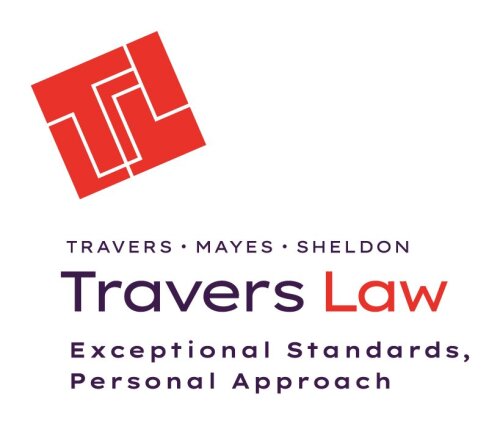Best Appeal Lawyers in Waterloo
Share your needs with us, get contacted by law firms.
Free. Takes 2 min.
List of the best lawyers in Waterloo, Canada
About Appeal Law in Waterloo, Canada
Appeal law in Waterloo, Ontario, refers to the legal processes by which a party requests a higher court to review and potentially change the outcome of a decision made by a lower court or tribunal. Waterloo is governed by both provincial and federal appellate rules, depending on the nature of the original case. Appeals can arise in civil, criminal, family, administrative, and other legal matters. The key appellate courts relevant in the Waterloo region include the Ontario Superior Court of Justice (Divisional Court and Court of Appeal for Ontario) as well as the Federal Court of Appeal for applicable cases.
Why You May Need a Lawyer
There are many circumstances in which you might seek a lawyer for an appeal in Waterloo, including:
- Believing that the original court decision was incorrect due to a legal error, procedural mistake, or significant new evidence.
- Facing an unfavorable ruling in criminal or family court, such as conviction or custody arrangements.
- Wanting to challenge decisions made by tribunals or administrative bodies, such as human rights or immigration hearings.
- Seeking to defend an already favorable decision that the opposing party is trying to overturn.
- Needing help navigating complex appeal procedures, strict deadlines, or detailed legal arguments required for appellate courts.
Local Laws Overview
In Waterloo, appeals are subject to provincial laws, such as the Courts of Justice Act (Ontario), as well as rules of appellate procedure set by Ontario's courts. Key aspects include:
- Strict Time Limits: You generally have 30 days from the date of the judgment to file a notice of appeal in most civil matters (shorter timelines may apply in criminal or administrative proceedings).
- Scope of Review: Most appeals in Ontario are "appeals on the record," meaning the appellate court reviews what happened in the lower court for errors of law, not new facts (except in rare circumstances).
- Leave to Appeal: In some cases, you must ask for permission (leave) to appeal, especially for administrative and small claims matters.
- Written Arguments: Appeals rely heavily on written legal arguments ("factums") and are not simply retrials.
- Costs: The losing party in an appeal may be ordered to pay some or all of the legal costs of the opposing party.
Frequently Asked Questions
What is an appeal, and how does it differ from a trial?
An appeal is a request to a higher court to review the decision of a lower court. Unlike a trial, no new evidence is typically presented. Instead, the appellate court examines if legal errors affected the outcome.
What kinds of cases can be appealed in Waterloo, Ontario?
You can appeal criminal, civil, family, administrative, and tribunal decisions, provided there are legal grounds and appeals are permitted under the law.
How long do I have to file an appeal?
Typically, you have 30 days from the decision date for civil cases. Deadlines for criminal or administrative matters may differ, so it’s important to check the specific rules for your case.
Do I need a lawyer for an appeal?
While you can technically represent yourself, appeals involve complex legal arguments and strict procedures. Most people benefit greatly from the expertise of an appellate lawyer.
What are “grounds for appeal”?
Grounds for appeal are the legal reasons for challenging a decision, such as errors of law, misinterpretation of evidence, or procedural unfairness.
Will the appellate court hear new evidence?
Generally, appellate courts only review the evidence and arguments presented at the original trial, except in rare instances where new evidence could not have been previously discovered.
How does the appeals process work?
You file a notice of appeal, prepare written submissions, and may participate in an oral hearing. The court then reviews the case and delivers its decision, which might affirm, reverse, or modify the lower court’s ruling.
Can I get legal aid for an appeal in Waterloo?
Legal Aid Ontario may provide assistance to eligible individuals for criminal and family law appeals. Availability depends on your financial situation and the merits of your case.
What happens if I lose my appeal?
If you lose, the original decision stands. You may be responsible for paying costs to the other party. In some cases, you might seek further appeal to a higher court, but only if permitted by law.
How long does the appeal process take?
The duration varies. Simple appeals may resolve within several months, while complex appeals may take a year or more. Delays can result from court schedules or the need for extensive written arguments.
Additional Resources
If you need more information or assistance, consider the following resources:
- Legal Aid Ontario - Provides legal assistance to eligible individuals.
- Waterloo Region Community Legal Services - Offers free legal information and sometimes representation.
- Ontario Ministry of the Attorney General - Publishes guides and notices on appeal procedures.
- Law Society of Ontario - Provides directories of licensed lawyers specializing in appeal law.
- Ontario Courts (court administration office) - Answers procedural questions and provides access to court forms.
- Pro Bono Ontario - May offer free or low-cost legal advice for qualifying matters.
Next Steps
If you believe you may need to file or respond to an appeal in Waterloo, take the following steps:
- Review the court or tribunal decision and note the date it was issued to calculate your appeal deadline.
- Gather all relevant documentation from your case, including court transcripts, pleadings, and written reasons for the decision.
- Consult a lawyer with experience in appellate law as soon as possible to discuss your options and the merits of your case.
- Explore eligibility for legal aid or seek free legal clinics if finances are a concern.
- If proceeding with an appeal, ensure all paperwork is filed correctly and on time to avoid jeopardizing your case.
- Stay in close contact with your lawyer and provide any information or documents they may need promptly.
Taking early action, seeking professional advice, and fully understanding the appeal process are crucial for increasing your chances of success. If you are unsure, always consult with a qualified legal professional to discuss your specific situation.
Lawzana helps you find the best lawyers and law firms in Waterloo through a curated and pre-screened list of qualified legal professionals. Our platform offers rankings and detailed profiles of attorneys and law firms, allowing you to compare based on practice areas, including Appeal, experience, and client feedback.
Each profile includes a description of the firm's areas of practice, client reviews, team members and partners, year of establishment, spoken languages, office locations, contact information, social media presence, and any published articles or resources. Most firms on our platform speak English and are experienced in both local and international legal matters.
Get a quote from top-rated law firms in Waterloo, Canada — quickly, securely, and without unnecessary hassle.
Disclaimer:
The information provided on this page is for general informational purposes only and does not constitute legal advice. While we strive to ensure the accuracy and relevance of the content, legal information may change over time, and interpretations of the law can vary. You should always consult with a qualified legal professional for advice specific to your situation.
We disclaim all liability for actions taken or not taken based on the content of this page. If you believe any information is incorrect or outdated, please contact us, and we will review and update it where appropriate.











